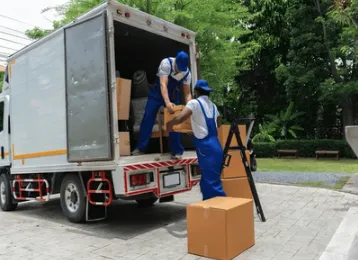
Needleheal Acupuncture: Ancient Wisdom with Modern Healing Power
Health
Online Degrees | Serach Ads

Moving Companies | Search ads
When the power goes out unexpectedly — whether due to a storm, equipment failure, or overloaded grid — it can cause more than just a minor inconvenience. For many households, losing electricity disrupts daily life, threatens food storage, and can even endanger health and safety. That’s where having an emergency generator becomes not just useful, but essential.
In this article, we’ll take a closer look at why a backup generator is a wise choice, what types exist, and how to choose the one that fits your needs. Whether you’re safeguarding a family home or a business property, understanding how these systems work could save you time, money, and stress in the long run.
Think of how many parts of your daily routine rely on electricity: heating and cooling, cooking, communication, internet access, medical devices, and more. A sudden blackout can bring everything to a standstill.
In some cases, the consequences can be serious — especially for households with young children, elderly residents, or anyone with medical needs. Food can spoil within hours, security systems may go offline, and pipes can freeze in colder months.
By providing an automatic source of power, a generator steps in as your first line of defense. It keeps lights on, appliances running, and your home safe until the grid is back online.
An emergency or backup generator is a device that delivers electricity when your main power source is unavailable. It typically runs on fuel — such as gasoline, diesel, propane, or natural gas — and connects to essential circuits in your home or building.
Let’s break down the most significant advantages:
No matter the weather or grid issues, your lights, fridge, and heating systems keep working. That stability is invaluable during emergencies.
Power outages often coincide with severe weather. Maintaining lighting and operational security systems during a storm reduces the risk of accidents, theft, or emergencies.
Sudden power surges or interruptions can damage expensive electronics or lead to data loss. A generator helps regulate and restore consistent power without dangerous fluctuations.
Even if you rarely experience outages, knowing you’re covered when one does occur brings a level of comfort money can’t always buy.

Online Degrees | Serach Ads

Moving Companies | Search ads
Not all generators are created equal, and choosing the wrong one can lead to frustration and wasted money. Here’s what to consider:
Like any piece of equipment, generators need care to work reliably:
An emergency generator isn’t just a luxury for remote areas or harsh climates — it’s becoming a necessity for anyone who values safety, continuity, and comfort during uncertain moments. Whether it’s keeping your freezer cold, your Wi-Fi running, or your family warm, backup power can make all the difference.
So if you’ve been thinking about how to better prepare your home for unpredictable weather or infrastructure issues, now might be the perfect time to consider investing in an emergency generator. It’s one of those purchases you’ll never regret — especially when the lights go out.